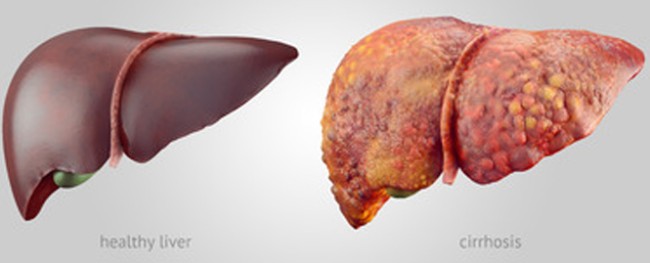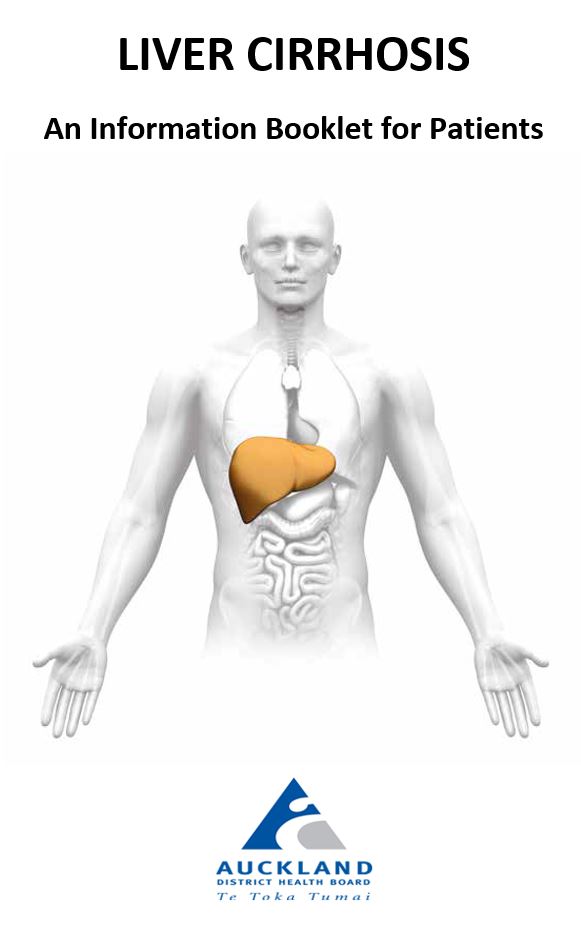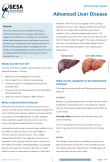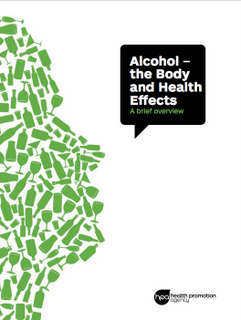You can now add Healthify as a preferred source on Google. Click here to see us when you search Google.
Cirrhosis
Key points about cirrhosis
- Cirrhosis is a serious condition in which long-term damage to your liver causes scar tissue to replace healthy tissue.
- It is also called advanced liver disease.
- Although the damage can’t be reversed, treatment for cirrhosis aims to stop further liver damage, control symptoms and reduce the risk of complications

Cirrhosis is also called advanced liver disease. It happens when scarring builds up on your liver through continuous damage and usually takes many years to develop.
The scar tissue replaces healthy cells so over time your liver is less able to:
- regulate the fluid in your bloodstream and body
- make enough chemicals for blood clotting
- process waste chemicals, medicines, toxins and other chemicals, so these may build up in your body.
There are different stages of cirrhosis.
- Compensated cirrhosis: This is the initial phase of cirrhosis, where the liver is still able to perform its functions, and most people will feel well. If the underlying cause of liver damage, such as hepatitis C or alcohol use is managed during this time, the liver may be able to heal and prevent further serious complications. You can live for years with compensated cirrhosis.
- Decompensated cirrhosis: If damage to the liver continues or the scarring becomes severe, the liver is no longer able to function as it should. This stage is known as decompensated cirrhosis. People with decompensated cirrhosis can be very unwell and may get complications that affect other parts of their body. They often need urgent treatment. See below: What are the complications of cirrhosis.

Image credit: 123rf
What are the causes of cirrhosis?
One of the main preventable causes causes of cirrhosis are drinking too much alcohol, with 5% to 15% of heavy drinkers developing it. Women who are heavy drinkers seem to be more prone than men to cirrhosis.
Other causes include having hepatitis C or fatty liver disease. Less common causes include hepatitis B infection and inherited liver diseases, eg, haemochromatosis.
What are the symptoms of cirrhosis?
There aren't usually any symptoms in the early stages. However, as your liver starts to function less well, you may notice:
- tiredness and weakness
- fluid build-up in your legs and tummy
- loss of appetite, feeling sick (nausea) and being sick (vomiting).
- loss of muscle mass and increased frailty
- tending to bleed and bruise more easily
- yellowing of your skin or the whites of your eyes
- itchy skin
- changes to your personality and behaviour, such as confusion, forgetfulness and difficulty concentrating
- vomiting blood or passing blood with your stools (poo).
See your healthcare provider if you have the symptoms. But you should also see them if you’re worried about how your drinking might be affecting your liver or if someone close to you has hepatitis. If your healthcare provider suspects you have cirrhosis, you will need to have some tests. These include:
- liver function tests – blood tests to measure the levels of enzymes and proteins made by your liver
- scans – to provide detailed images or to check how stiff your liver is, which indicates how much scarring there is
- biopsy – rarely, if the cause of your liver problem is unknown, a fine needle may need to be inserted between your ribs to remove a small sample of liver cells to send to a laboratory to be examined.
There's no cure for cirrhosis. The aim of treatment is to ease your symptoms and stop your cirrhosis getting worse. It's important that you stop drinking alcohol.
Treatment may include:
- a low-salt diet or tablets called diuretics to reduce the amount of fluid in your body
- medicine to reduce blood pressure in the main vein that transports blood from your gut to your liver
- medicine to prevent or treat any infection
- creams to reduce itching.
If your liver has become seriously damaged, you may require more specialised treatment. If it can no longer function, you may be put on a waiting list for a liver transplant.
It's important you that follow all aspects of your treatment to prevent further damage to your liver. This includes not drinking alcohol, following a low-salt diet and losing weight if your healthcare provider has asked you to.
Other lifestyle changes that support your health with cirrhosis include:
- regular exercise
- good hygiene to reduce your risk of getting infections
- a healthy diet, as malnutrition is common in people with cirrhosis.
For help to stop drinking alcohol, call the Alcohol Drug Helpline on 0800 787 797, visit Alcohol Drug Helpline(external link) or free text 8681 for confidential advice, all available 24 hours a day, 7 days a week. You can also contact Community Alcohol and Drug Services (CADS)(external link).
If you're finding it hard to cope with your condition, you can get counselling help. Ask your healthcare provider for a referral or find a counsellor(external link).
Cirrhosis can cause complications that affect other parts of the body. The following are examples of the main complications that can happen with decompensated cirrhosis. While they can be quite serious, not everyone will experience them.
Portal hypertension
This is an increase in the blood pressure in the portal vein, which carries blood from the bowel and spleen to the liver. As the liver becomes more scarred, it gets stiffer making it difficult for blood to flow through it, causing the pressure in the portal vein to rise.
Fluid build-up in your abdomen (ascites)
Fluid build-up in your abdomen occurs because of portal hypertension, which forces fluid out of your blood vessels into your belly (abdomen). Fluid builds up may also happen if the liver can't make enough of certain blood proteins, such as albumin.
Oesophagus varices and gastrointestinal bleeding
Oesophagus varices are enlarged veins in the oesophagus, the tube that connects the throat and stomach. The veins can leak blood or burst, causing bleeding from the oesophagus, stomach, and from the rectum (bottom). Once you've had a bleeding episode, your risk of another bleeding episode greatly increases. Medicines such as carvedilol help to prevent bleeding in many people who have oesophageal varices. They don't prevent oesophageal varices from forming.
Problems with clotting or increased bleeding or bruising
The liver produces proteins that help your blood to clot. If your liver isn’t working well, your blood may not clot properly increasing your risk of bleeding or bruising. It may also cause increased clots such as deep vein thrombosis (clots in your legs), or portal vein thrombosis (clotting in the main liver vein).
Muscle wasting and frailty
People with advanced liver disease are at risk of malnutrition which may result in muscle wasting and reduce muscle strength (frailty). It's important to ensure you are eating a diet with enough protein and calories. People with cirrhosis need more protein and calories than the average person because you may not be able to store as many nutrients as usual and your liver may be working harder than usual. Read more about high-protein, high-energy diet for advanced liver disease(external link).
Being physically active is an important way to help keep your muscles and body strong. Do what you can manage each day – doing something, even something small, is much better than nothing. If you aren’t sure what type of activity is good for you to try, speak to your doctor and they can give you personalized advice.
Cirrhosis(external link) Patient Info, UK
Cirrhosis(external link) NHS Choices, UK
Resources
Liver cirrhosis – an information booklet for patients [PDF, 745 KB] Auckland DHB, NZ
Alcohol – the body and health effects(external link) Health Promotion Agency, NZ, 2016
References
- Cirrhosis(external link) NHS Choices, UK, 2020
- Cirrhosis(external link) Patient Info, UK, 2023
- Alcohol – the body and health effects – a brief overview(external link) Health Promotion Agency, 2016
- Cirrhosis of the liver(external link) British Liver Trust, UK
- Cirrhosis(external link) National Institute of Diabetes and Digestive and Kidney Diseases, US
Liver function testing in primary care(external link) BPAC, NZ, 2022
Cirrhosis(external link) Patient Info Doctor, UK, 2023
Alcohol misuse – how to help patients in primary care(external link) BPAC, NZ, 2016
A spotlight on the key causes of chronic liver disease(external link) BPAC, NZ, 2022
Brochures

Auckland DHB, NZ

Information about Advanced Liver Disease
Gastroenterological Society of Australia, 2022

Health Promotion Agency, NZ, 2016
Credits: Healthify editorial team. Healthify is brought to you by Health Navigator Charitable Trust.
Reviewed by: Dr Art Nahill, Consultant General Physician and Clinical Educator
Last reviewed:





